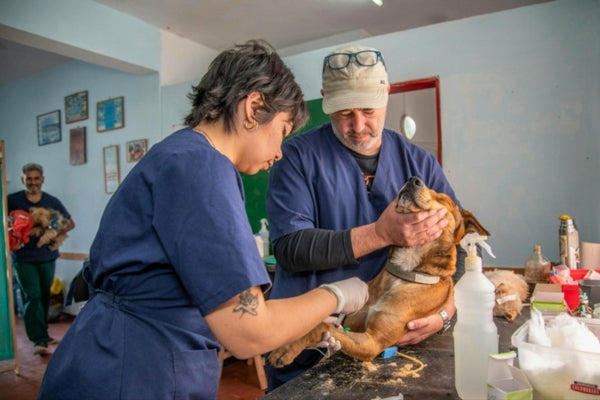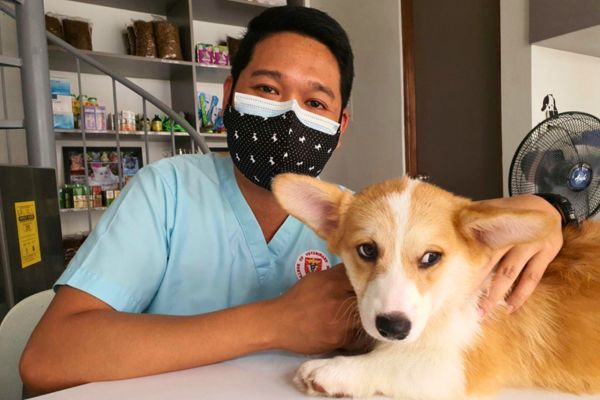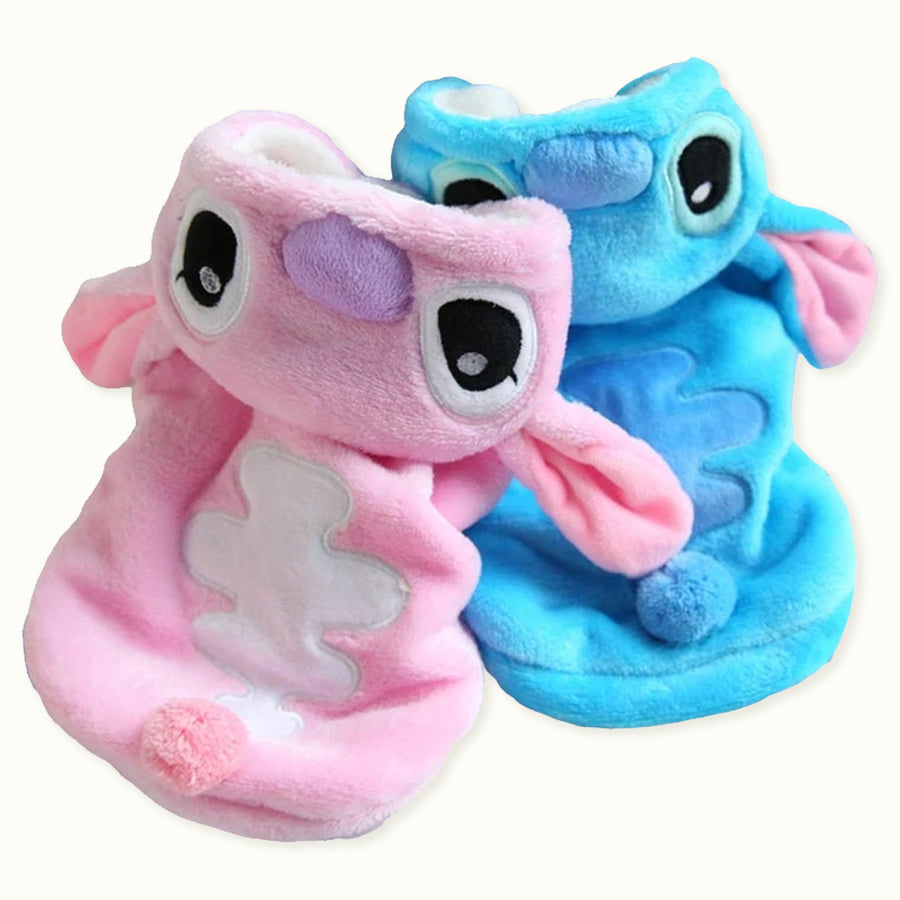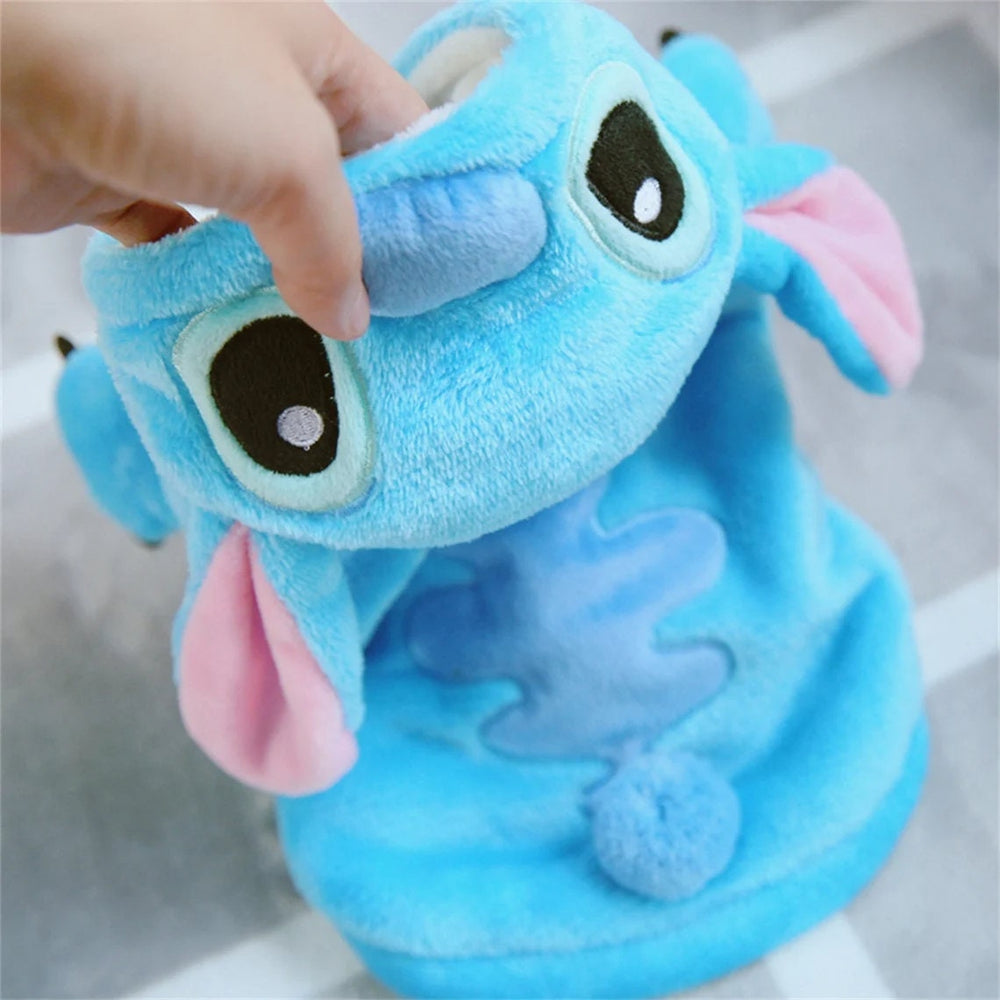15 Questions To Ask Your Vet About Your New Puppy
Welcoming a new puppy into your home is an exciting and joyful experience. However, it can also be overwhelming for both you and your new furry friend. As a responsible pet owner, it's important to make sure that your puppy receives the best care possible. This includes regular visits to the veterinarian.
As a new puppy parent, it's normal to have a lot of questions about your puppy's health and well-being. That's why we've compiled a list of 15 essential questions to ask your vet during your puppy's first visit. These questions will help you better understand how to care for your new furry family member and provide them with the best start in life.
Why Are These 15 Questions Important?
These 15 questions cover a range of topics that are vital for your puppy's health and happiness. They address common concerns and provide valuable information about caring for a new puppy. Asking these questions will not only benefit your puppy but will also help you become a more knowledgeable pet owner.
By asking these questions, you can ensure that you are providing the best possible care for your new puppy. It's important to have a good understanding of your puppy's needs and how to meet them, and these questions will help you do just that.
15 Questions To Ask Your Vet About Your New Puppy

There are many questions you may have about your new puppy, but these 15 should be at the top of your list for discussion with your veterinarian:
1. What Vaccinations Does My Puppy Need?
Vaccinations are an important part of your puppy's healthcare routine. They protect your puppy from serious and potentially life-threatening diseases. During your first vet visit, be sure to ask about the recommended vaccinations for your puppy.
Your vet will typically recommend a series of shots that cover common diseases such as rabies, distemper, and parvovirus. These vaccinations are usually given in a series of visits, starting at around 6-8 weeks old and continuing until your puppy is about 16 weeks old.
It's important to follow this vaccination schedule to ensure that your puppy is fully protected. Your vet will also provide you with information on when to bring your puppy back for booster shots and annual vaccinations. Remember to keep a record of your puppy's vaccinations to stay on top of their health needs.
2. When Should I Start Heartworm Prevention For My Puppy?
Heartworm disease is a serious and potentially fatal condition that can affect puppies as young as two months old. It's caused by parasitic worms that are transmitted through mosquito bites.
To protect your new puppy from this preventable disease, it's important to start them on a heartworm prevention medication as soon as possible. Your vet will recommend a suitable product based on your puppy's age, weight, and breed.
Typically, heartworm prevention should start at around 6-8 weeks of age and continue every month for the rest of your puppy's life. It's important to administer this medication regularly and on time to ensure its effectiveness. Ask your vet about the best heartworm prevention options for your puppy and how to properly administer them.
3. What Is The Best Diet For My Puppy?
Good nutrition is essential for your puppy's growth and development. During your first vet visit, ask about the best diet for your new furry friend.
Your vet will recommend a high-quality, balanced diet that meets your puppy's specific nutritional needs. This may vary depending on their breed, age, and size. Puppies require higher levels of protein, fat, and certain vitamins and minerals than adult dogs.
Your vet may also suggest a feeding schedule and portion sizes for your puppy. It's important to follow these guidelines to ensure your puppy is getting the right amount of nutrients without overfeeding them. Ask about any potential dietary restrictions or allergies your puppy may have as well.
Proper nutrition is crucial for your puppy's overall health and well-being. By asking your vet about the best diet for your puppy, you can help them grow into a healthy and happy adult dog. Thus, it's important to follow their recommendations closely.
4. How Often Should I Take My Puppy For Check-Ups?
Regular check-ups are important for monitoring your puppy's health and catching any potential issues early on. During your first vet visit, ask about recommended check-up schedules for your puppy.
Generally, puppies should have a check-up every 3-4 weeks until they are around 16 weeks old, then every 6-12 months thereafter. However, this may vary depending on your puppy's individual needs and health history.
These check-ups typically include a physical exam, vaccinations, and screenings for common puppy health issues. They also allow you to discuss any concerns or questions you may have about your puppy's behavior or well-being.
5. When Should I Spay/Neuter My Puppy?
Spaying or neutering your puppy is an important decision for their health and well-being. These procedures involve removing the reproductive organs to prevent unwanted pregnancies and eliminate certain health risks.
During your first vet visit, ask about the recommended age for spaying or neutering your particular breed of puppy. In most cases, this is done at around 6 months of age.
Spaying/neutering also has other benefits such as reducing the risk of certain cancers and behavioral issues. Your vet can provide you with more information and discuss any potential risks or concerns related to these procedures.
6. How Do I Prevent Common Health Issues In Puppies?
Puppies are susceptible to various health issues, especially during their first year of life. To prevent these common problems, it's important to follow your vet's advice on vaccinations, diet, and exercise.
Regular check-ups also play a crucial role in detecting and preventing health issues. Your vet will be able to catch any potential problems early on and provide treatment before they become more serious.
Proper hygiene and grooming also help prevent common puppy health issues such as ear infections, skin problems, and dental disease. Ask your vet about the best practices for keeping your puppy clean and healthy.
By taking preventive measures and staying in close communication with your vet, you can ensure that your new puppy stays happy and healthy for years to come.
7. What Should I Do In Case Of A Medical Emergency With My Puppy?
In case of a medical emergency with your puppy, it's important to stay calm and act quickly. If possible, keep a first aid kit handy for any minor injuries or wounds.
If the situation is more serious, contact your vet immediately for guidance. They may recommend bringing your puppy in for emergency care or providing instructions for at-home treatment.
It's also important to have an emergency plan in place, such as the contact information for a 24-hour animal hospital or pet poison control hotline. Keep this information readily available so you can act swiftly in case of an emergency.
Lastly, it's crucial to stay vigilant and monitor your puppy's health regularly. Be on the lookout for any changes in behavior or symptoms that may require immediate attention.
8. How Can I Ensure My Puppy's Mental And Emotional Well-Being?
A happy and healthy puppy not only needs physical care but also mental and emotional support. Socialization, training, and plenty of playtime are key factors in ensuring your puppy's overall well-being.
From a young age, it's important to expose your puppy to different people, animals, and environments to help them develop socially. Additionally, enrolling in puppy training classes can provide mental stimulation and teach important behaviors for a well-mannered pup.
Playing with your puppy regularly also promotes bonding and helps prevent boredom, which can lead to destructive behaviors. It's important to set aside time each day for playtime and other activities that stimulate their mind.
By providing a loving and nurturing environment for your puppy, you can help them develop into a well-adjusted and happy adult dog. Remember to always prioritize their mental and emotional well-being alongside their physical health.
9. What Can I Do To Prevent Common Health Issues Such As Fleas, Ticks, And Heartworm?
Preventing common health issues such as fleas, ticks, and heartworms is crucial for your puppy's well-being. These parasites can cause a range of health problems and discomfort for your pet.
To prevent fleas and ticks, it's important to regularly groom your puppy and check for any signs of infestation. Your vet may also recommend a flea and tick prevention product for added protection.
Heartworm is spread by mosquito bites, so it's important to take preventive measures such as using heartworm medication prescribed by your vet. Regular testing and check-ups can also help detect heartworm early on.
Keeping your puppy's environment clean and regularly washing their bedding can also prevent these common health issues. If you have other pets, make sure to treat them as well to prevent the spread of parasites.
10. How Can I Provide The Best Possible Care For My Puppy?
Providing the best possible care for your puppy requires a combination of love, attention, and proper healthcare.
Regular check-ups, vaccinations, and preventive measures such as spaying/neutering are important for their physical health. Along with these, it's crucial to prioritize their mental and emotional well-being through socialization, training, and playtime.
Proper nutrition is also key in maintaining your puppy's health. Consult with your vet to determine the best diet for your puppy's breed and age.
Additionally, maintaining a clean and safe environment for your puppy helps prevent common health issues. Regularly cleaning their living space and providing proper hygiene can go a long way in keeping them healthy.
11. What Should I Do If My Puppy Gets Injured?
If your puppy gets injured, it's important to assess the severity of the injury. For minor wounds or cuts, you can clean and treat them at home with a first aid kit. However, if the injury is more serious or if your puppy seems to be experiencing pain or discomfort, contact your vet immediately.
Avoid giving your puppy any over-the-counter medications without consulting your vet first. They will be able to provide proper treatment and medication for your puppy's specific injury.
It's also important to monitor the injury closely and keep your puppy as calm and comfortable as possible while seeking medical attention. With prompt care and proper treatment, your puppy can recover from injuries in no time.
12. How Can I Prepare For My Puppy's First Vet Visit?
Preparing for your puppy's first vet visit is crucial in setting a positive foundation for their future healthcare. Start by gathering any necessary documents, such as adoption papers or medical records, to bring with you.
It's also important to research and choose a reputable and experienced vet who you feel comfortable with. This will ensure that your puppy receives the best possible care.
Before the visit, make sure your puppy is well-rested and has used the bathroom. Bring some of their favorite toys or treats to help them feel more at ease during the appointment.
During the visit, ask any questions you may have about caring for your puppy, and don't be afraid to voice any concerns. Your vet will also provide important information and guidance on vaccinations, nutrition, and overall care for your puppy.
13. What Are Some Red Flags To Look Out For In Terms Of My Puppy's Health?
As a responsible pet owner, it's important to be aware of any potential red flags that could indicate an underlying health issue in your puppy. Some common signs to look out for include changes in behavior or appetite, lack of energy or lethargy, vomiting or diarrhea, and abnormal urination.
Other physical symptoms such as coughing, sneezing, or discharge from the eyes or nose should also be monitored closely. If you notice any of these signs, it's important to consult with your vet for proper diagnosis and treatment.
Preventive measures such as regular check-ups and staying up-to-date on vaccinations can also help detect and prevent potential health issues in your puppy. Always trust your instincts and don't hesitate to seek medical advice if you have concerns about your puppy's health.
14. How Can I Properly Socialize My Puppy?
Proper socialization is crucial in helping your puppy develop into a well-behaved and confident adult dog. It's important to expose them to different people, animals, and environments early on in their life.
Start by introducing your puppy to new experiences slowly and positively. This could include taking them for walks in new places, inviting friends and family over to meet them, and enrolling them in puppy socialization classes.
Positive reinforcement training techniques can also help your puppy learn how to interact with others in a calm and friendly manner. It's important to monitor their behavior and intervene if they show signs of fear or aggression.
15. Is There Anything Else I Should Know About Caring For A New Puppy?
Caring for a new puppy requires patience, dedication, and lots of love. It's important to remember that every puppy is unique and may have different needs and behaviors.
Be prepared to make adjustments as your puppy grows and learns. This could include adapting their diet, exercise routine, or training methods.
Consistency is key in building a strong bond with your puppy and helping them learn good behaviors. Be patient and understanding, as it may take time for your puppy to adjust to their new home.
So these 15 question-and-answer sets provide a good overview of how to care for your new puppy. Remember to always prioritize their health, happiness, and well-being, and you will have a loving and loyal companion for years to come.
Should I Get My Puppy Spayed Or Neutered?

Spaying (for females) and neutering (for males) are surgical procedures that involve removing the reproductive organs of a puppy. While there can be some controversy surrounding these procedures, they are typically recommended by veterinarians for various reasons.
Spaying a female puppy not only prevents unwanted pregnancies but also eliminates the risk of uterine infections and certain types of cancer. Neutering a male puppy can help prevent testicular cancer, prostate issues, and undesirable behaviors such as roaming or marking.
Additionally, spaying and neutering can also have positive effects on a puppy's behavior by reducing aggression and decreasing the urge to roam or mate. It is typically recommended to have this procedure done around 6 months of age.
However, it's important to consult with your vet about the best timing for your puppy. They will also provide proper aftercare instructions to ensure a smooth recovery.
Mistakes To Avoid As A New Puppy Owner
As a new puppy owner, it's natural to make mistakes as you learn how to properly care for your furry friend. However, by being aware of common mistakes and how to avoid them, you can provide the best possible care for your puppy.
One mistake to avoid is not providing enough mental and physical stimulation for your puppy. This can lead to boredom and destructive behaviors. Make sure to schedule regular playtime and walks, as well as provide mental stimulation through training or puzzle toys.
Another mistake is not being consistent with rules and boundaries. Puppies thrive on routine and consistency, so it's important to establish rules early on and stick to them. This will help your puppy learn boundaries and good behaviors.
Lastly, not socializing your puppy properly can lead to behavioral issues in the future. Make sure to expose them to different people, animals, and environments during their critical socialization period (between 3-14 weeks of age) to help them become confident and well-adjusted adult dogs.
FAQs
Does My Puppy Need To Be Groomed?
While not all puppies require professional grooming, regular at-home grooming is important for maintaining their coat and skin health. Brushing your puppy's fur helps remove loose hair and distribute natural oils, while bathing can help keep them clean and free of parasites.
How Often Should I Take My Puppy For Walks?
Puppies need daily exercise to stay healthy and happy. The frequency and duration of walks will vary depending on your puppy's age, breed, and energy level. Consult with your vet for specific recommendations based on your puppy's individual needs.
How Do I Know If My Puppy Is Getting Enough Nutrition?
Your vet can guide the appropriate amount and type of food to feed your puppy based on their age, breed, and health. It's important to monitor your puppy's weight and adjust their diet accordingly if they are gaining or losing too much.
Conclusion
Bringing home a new puppy is an exciting and rewarding experience. By following these tips and guidelines, you can provide the best possible care for your new furry friend. Remember to prioritize their health, happiness, and well-being, and don't be afraid to seek guidance from your vet or other trusted sources if needed.
With proper care and love, your puppy will grow into a happy and well-adjusted adult dog, bringing joy to your life for many years to come. So go ahead and enjoy the journey of raising your new puppy!









Leave a comment